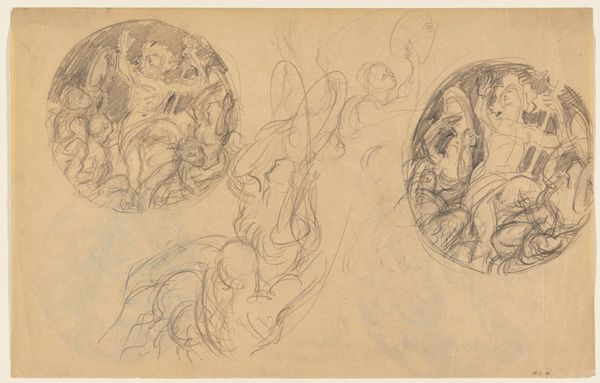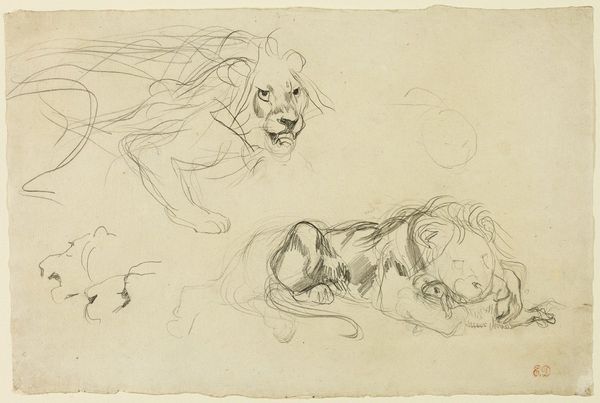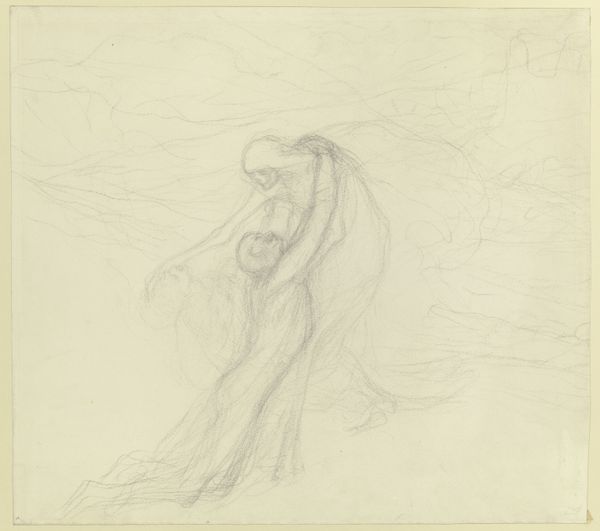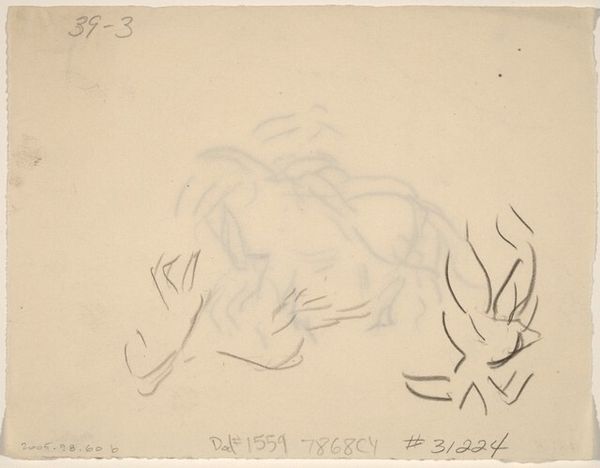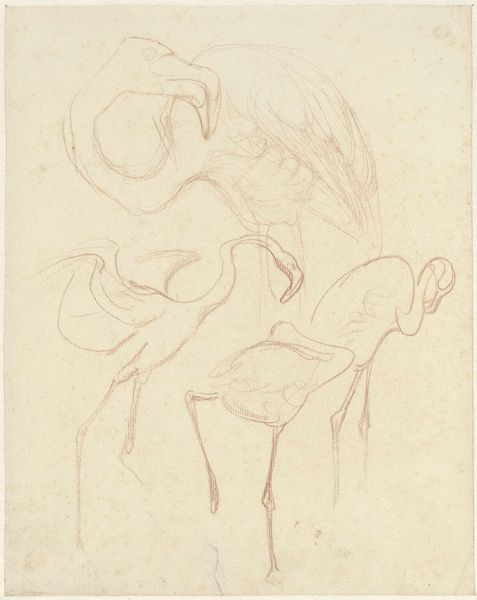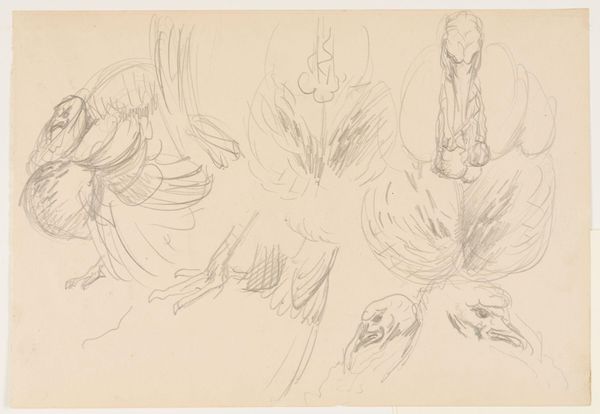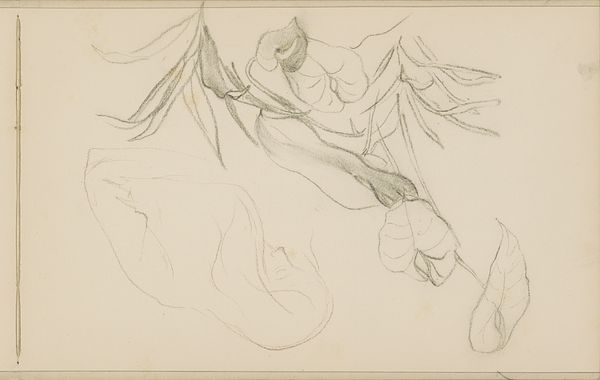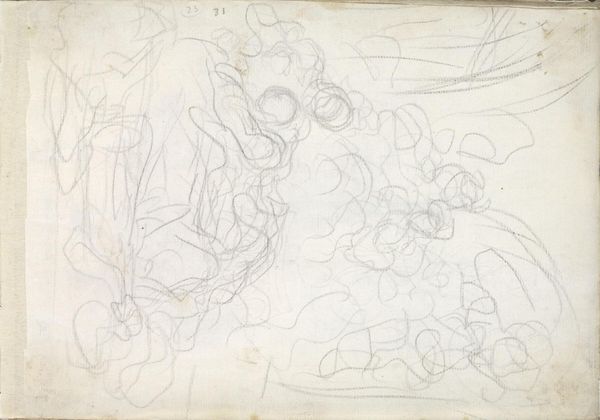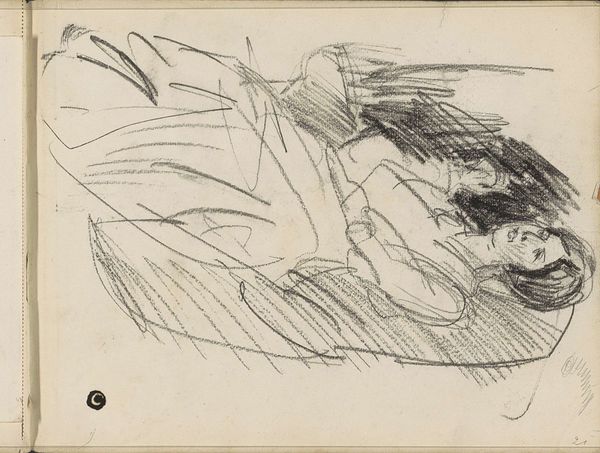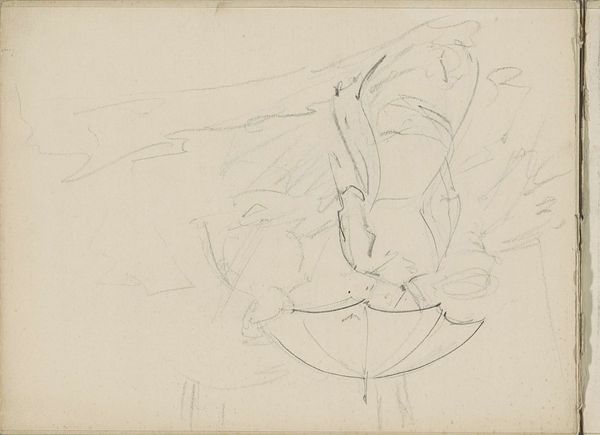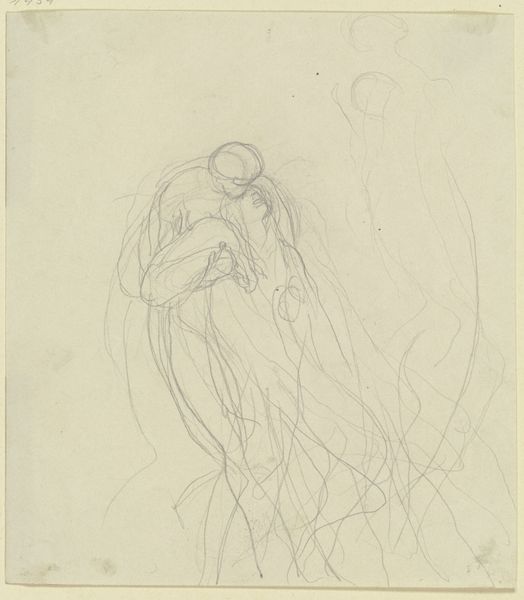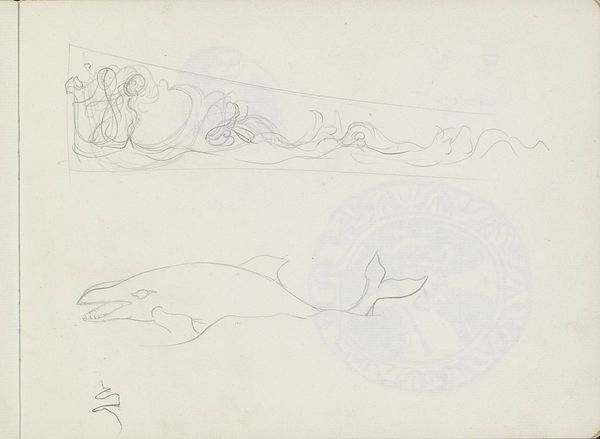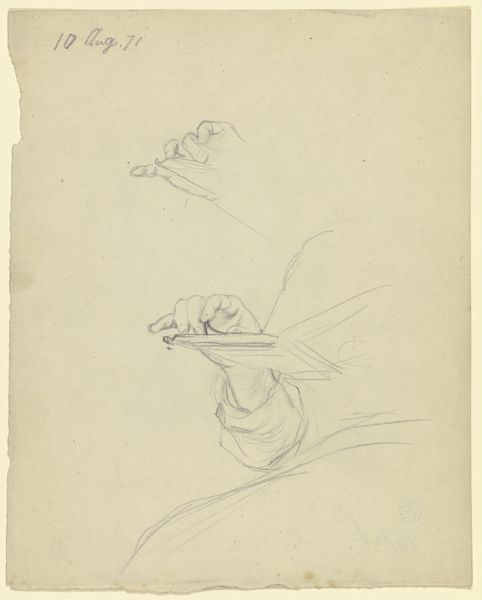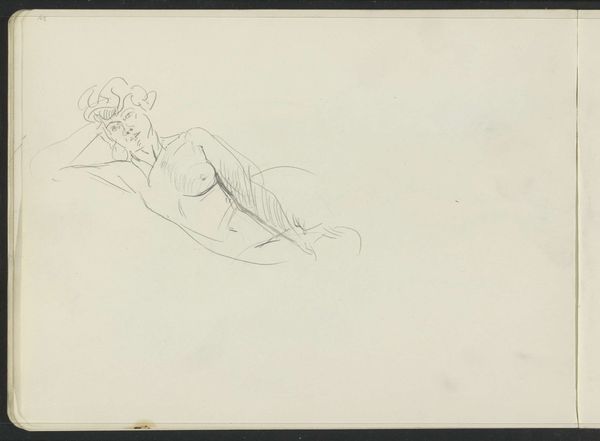
drawing, pencil, graphite
#
portrait
#
drawing
#
imaginative character sketch
#
toned paper
#
light pencil work
#
pencil sketch
#
personal sketchbook
#
ink drawing experimentation
#
pen-ink sketch
#
pencil
#
united-states
#
graphite
#
sketchbook drawing
#
pencil work
#
sketchbook art
#
realism
Dimensions: 8 1/2 x 11in. (21.6 x 27.9cm)
Copyright: No Copyright - United States
Editor: Wanda Gág's "Mutzi Asleep," created around 1937, is a graphite and pencil drawing. The gentle lines give it a very soft and peaceful feeling. What visual symbols or cues jump out at you in this sketch? Curator: The recurrence of sleep itself is significant. Sleep, particularly of a domestic animal, embodies themes of trust, safety, and surrender. Cats, mythologically, are liminal creatures, existing between worlds. What does their vulnerability in sleep convey to you? Editor: Hmm, maybe that even these creatures connected to mystery need rest, that they too can feel safe? It makes me consider our relationship with animals, what they symbolize to us culturally. Curator: Precisely. Consider also the lines themselves – loose, unfinished, evocative rather than definitive. Gág isn’t merely depicting; she’s capturing a fleeting moment. The absence of harsh lines mirrors the delicate state of slumber, suggesting a dreamscape. Where might that place reside? Editor: Perhaps that place is Gág’s memory. As if this image emerges gently from within her, just as her cat falls asleep in her lap. The pencil strokes mimic that feeling. Curator: Indeed. These visual symbols—the sleeping cat, the tentative lines— speak to vulnerability, intimacy, memory. And art allows us to remember them. Editor: Looking closer, it’s interesting to notice how Gág uses simple lines to communicate a deeper sense of safety and comfort. Thanks for sharing a glimpse into the deeper meanings embedded in these lines.
Comments
No comments
Be the first to comment and join the conversation on the ultimate creative platform.
